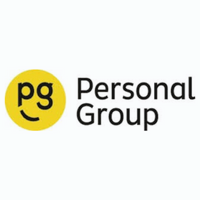5 ways you can use health cash plans more and PMI less
Levelling the playing field for frontline deskless employees is high on the agenda for many organisations.
Stats such as “only 43% of UK deskless workers feel seen and appreciated at work, versus 61% of desk based employees” (according to thehrdirector.com) are increasingly common.
For many organisations with frontline or deskless workers, or those in low margin sectors, despite the will to provide robust benefits to their people – the commercial reality provides a significant challenge.
Private medical insurance (PMI) is simply unaffordable for the majority. It is therefore not a surprise that as an alternative, plans are fast growing in popularity and rollout.
In terms of outlay, whereas PMI will typically cost a company in the region of £600-£700 per employee for a year's cover, a cash plan can cost a fraction of that - making it a far more affordable option for a greater number of workers, and companies.
For individual-paid plans this represents buying a beer or a couple of coffees a month – a small price to pay. So how can companies look to lean more heavily on cash plans, rather than PMI?
1. Level the playing field for deskless workers
Cash plans are seen as a tool to support all employees, but data shows a growing trend in companies with deskless workers providing these plans on a company – or more often - an employee paid basis.
Currently, only 5% of deskless workers are being offered this kind of benefit, which gives organisations a significant opportunity to level up by offering added peace of mind to every worker, irrespective of their level or grade, at the same time boosting overall wellbeing and retention and cutting absenteeism.
While multiple online benefits are available through a cash plan, it is often not the method of choice for deskless workers. The opportunity for face-to-face meetings, at no cost to the employer significantly enhances the uptake and benefit to the individual an the employer.
2. Promote a preventative approach to health and wellbeing
Investing in preventative healthcare for employees is critical given the prevalence of health issues in the workforce. According to government data, around 12.8 million working age people – that’s about 31% - have a long term health condition, either physical or mental.
Collectively, we need to place more value on products and services that offer everyday peace of mind to the greatest number of people, preventing burn-out rather than trying to cure it. Cash plans can be a major part of this.
Until recently, the two primary reasons for employees to sign up to a cash plan were dentists and opticians.
Now, we are seeing an interesting evolution in the cash plan market where diagnostic tests like MRIs and X-rays are also covered and are becoming a key driver for take-up.
These services allow workers to avoid some of the worst NHS waiting times and access the treatment they need quicker, either back through the NHS or privately if they have that option.
The same saving in time is equally crucial for businesses in terms of operational flow and productivity.
3. Accentuate the family-friendly top-ups
Many working parents place huge value on support for family health. In a recent Unicef survey, 44% of UK parents said their children’s health and development was among their top concerns.
Most cash plans cover children free of charge and offer employees the option to upgrade their level of cover via salary sacrifice deductions, add partners and additional complimentary insurance options such as health assessments, cancer cover and sick pay benefits payable via direct debit or payroll deduction.
Often cash plans come with limited restrictions making it very attractive to both individuals and employers.
4. Promote Wellbeing: Prevention is better than a cure
Fostering a culture of wellbeing and early intervention at work isn’t just altruistic – it has a direct impact on productivity and costs.
Since Covid, there has been a rising trend in presenteeism - employees working while unwell and not at full capacity. The Guardian newspaper recently reported that on average, UK employees now lose 44 days of productivity per year by working through sickness.
Cash plans now include a greater range of options for promoting both physical and mental health.
Discounted gym membership is popular across the whole generational spectrum of worker, while cash plan providers are also now looking more holistically at the workplace to better understand why workers are struggling with their mental health since the pandemic, and addressing those issues through EAPs and support.
5. Emphasise the power of digital integration
In the busy modern world of hybrid and remote working, almost all the products and benefits available within a cash plan can be accessed and purchased online.
Increasingly, rather than being seen as separate products requiring multiple logins, the constituent parts of a varied cash plan can now be brought to the employee in one place through an HR smartphone app.
For both workers and employers, there is no question that cash plans now offer a multi-faceted pathway into health and wellbeing products, with a strong return on investment in time, reduced absenteeism, worker resilience and appreciation.
Supplied by REBA Associate Member, Personal Group
Personal Group provides the latest employee benefits and wellbeing products.








